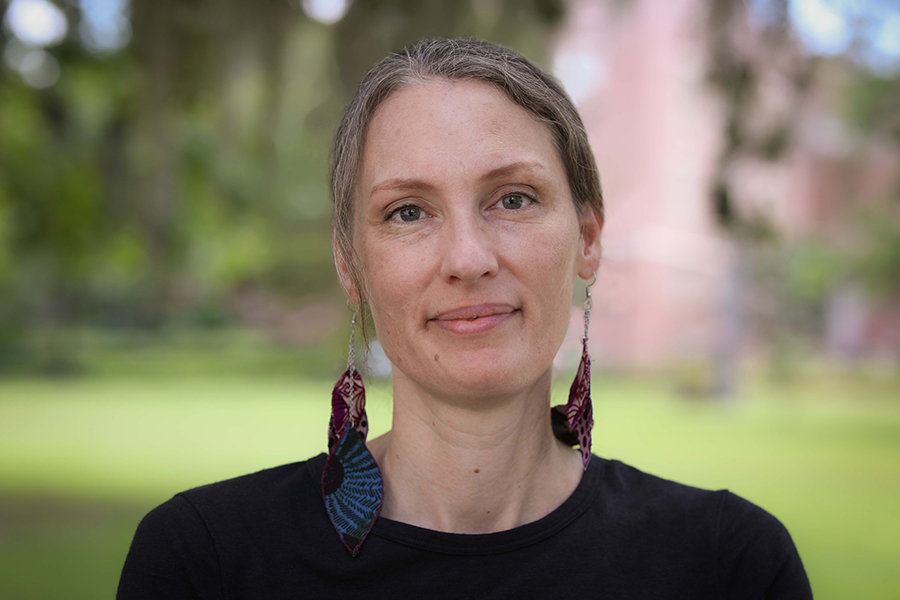Philosophy doctoral student wins international essay prize for work on anger diminishment

A Florida State University philosophy graduate student has won a prestigious international essay competition with a paper exploring backward-looking emotions, particularly anger, and under what circumstances it is permissible to let go of such feelings.
Renee Rushing, a doctoral student in the Department of Philosophy, was awarded the 2022 Philosophy Essay Prize from the Royal Institute of Philosophy, the United Kingdom’s largest independent charitable foundation devoted to sharing philosophical thinking, for her work, “Fitting Diminishment of Anger: A Permissivist Account.”
“Winning the essay prize means more than I can express in words,” Rushing said. "It shows that I am capable of producing work providing significant contributions to the field of philosophy.”
Rushing’s essay is slated to appear in the October 2023 edition of Philosophy, RIP’s flagship journal in publication since 1926. Rushing will also receive a monetary prize of just over $1,500. Each year, essay entries are judged on originality, clarity of expression, breadth of interest, and potential for advancing discussion. In exceptional circumstances, RIP has awarded the essay prize jointly, as is the case for Rushing and co-winner, Michael Cholbi, professor and personal chair in philosophy at the University of Edinburgh in Scotland.
Rushing’s studies focus on moral psychology, a field concerned with attitudes such as anger and blame, which present challenges concerning how humans live and interact with one another. Rushing’s essay is an outgrowth of her reflection on the nature of anger along with contemplation of questions raised in contemporary philosophy literature that focus on backward-looking emotions — responses to something that has already happened that can include shame, guilt, remorse and anger — and explores conditions that allow for the appropriate diminishment of anger since the past cannot be undone.
For the essay, Rushing aimed to provide a focused, first-person account and concentrated on the anger she felt towards her neighbors, who constantly blared music. She then analyzed what would diminish the anger she still felt when looking back on the situation and, in doing so, discovered a solution: Compassion.
“I argue, in a nutshell, that anger reflects the vulnerability and powerlessness we feel when we are wronged,” Rushing said. “So, our anger can diminish fittingly through compassion — compassion that results from when one understands the immoral behavior that has triggered their anger is likely a sign the wrongdoer also feels vulnerable and powerless. I posit that we are all capable of this kind of compassion in some instances when we become angry because we all have committed wrongful acts due to our own feelings of powerlessness and vulnerability.”
Rushing attributes her success in the competition to the novelty of the essay’s subject matter in philosophical literature, and according to one of the competition’s judges, her account gives a “positive outlook on our moral-psychological condition.”
Professor and Department of Philosophy chair Randolph Clarke, who served as Rushing’s master’s thesis adviser and is currently her doctoral studies major professor, said the seriousness with which she approaches her work and the genuinely new and interesting contributions she brings to philosophical debates make Rushing a standout among students in the field.
“The award is truly a remarkable accomplishment,” Clarke said. “The competition is open to all, including senior faculty from around the world. The joint winner is a professor with over 100 publications to his name, whereas Renee is a year past receiving her master's degree.”
After graduation, Rushing aspires to a career in academic philosophy and to work as a researcher and professor. However, Rushing’s lifelong goal has been to be what she calls a “lifetime learner.”
To learn more about the Department of Philosophy, visit philosophy.fsu.edu.
